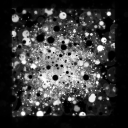I mentioned not liking the word ‘mindfulness’. I also don’t like that thing where people twist the spelling of words to imply a different meaning from the usual one (e.g., ‘response-ability’), a habit Fritz Perls seems to have acquired somewhere along the course of his career. But it doesn’t really matter that I don’t like them because that’s just a matter of personal taste. My dislike of the word ‘ego’, however, is not personal. It arises out of the fact that the word has distinct though connected concepts tangled up in it in a rather confusing way.
It was Freud who first formulated the concept of the ego, but he didn’t invent the word. That honor belongs to one of his early English-language translators. Freud just called it ‘das Ich’, or ‘the I’. In a sense, then, the concept is just what it says on the tin: the ego is our conscious selves, everything that’s encompassed by the word ‘I’.
The other meaning is the one found in words like ‘egoism’ or ‘egotism’, which, confusingly, have different technical meanings but are both colloquially synonyms for ‘selfishness’. I haven’t done the research, but I would guess, given that it was once the common practice of learned English speakers to borrow from Latin when they wanted to coin new words, that the same word was just borrowed on at least three different occasions, resulting in the conceptual clusterf*ck it is today. In any case, you can probably imagine how troublesome it would be if ‘self’ and ‘selfishness’ were both the same word. That’s my problem with ‘ego’. That and the related problem of people who are keen on getting rid of their egos not always being clear on which one they’re aiming for, which is problematic since only one of its meanings signifies something negative and it is by most accounts hard to be a functioning human being without the other. But that’s a whole other topic.
 (tldr; ‘Ego’ is a confusing word, but for my purposes, it is just what we are referring to when we say ‘I’.) (tldr; ‘Ego’ is a confusing word, but for my purposes, it is just what we are referring to when we say ‘I’.)
Different psychologists have their own formulations of what exactly the ego is, beyond just what people mean when they say ‘I’. Freud defined it by its role as referee between the id and the superego (which I won’t get to describing here). From what I can remember, Jung mostly considers it in contrast with the ‘self’, which is used to indicate the entirety of a person, most of which (unlike the ego) is unconscious.
Perls also considers the ego in contrast with the self, but a distinct concept of self that isn’t immediately identifiable with Jung’s (although there are once again intriguing parallels). He defines the ego as one’s ‘system of identifications’ – it is what one feels oneself to be in an active, deliberate, goal-oriented role. One is trying to control one’s environment in some way, which entails a feeling of being separate from that environment. The ego is what one perceives when introspecting – that is, deliberately trying to perceive one’s own mind – which makes it more immediately comprehensible and familiar than the self, although the latter is more fundamental.
Perls mostly defines the self in terms of what it isn’t, or as transcending and incorporating opposing concepts. It is spontaneous; it is neither active nor passive, but somewhere in between them; it is both engaged and disinterested; it does not just act on the environment but is, in Perls’s words, ‘growing in it’. It’s a rather confusing description, but if anybody is familiar with the concept of flow states, that’s very much what it sounds like Perls is describing, with the additional implication that this is a more fundamental state of being than the more limited ones derived from it.
The self is the more comprehensive, more fundamental mode, but that doesn’t mean that there aren’t times and places in which the more active stance in which one is aware of oneself as ego isn’t appropriate. But it works best as an ‘emergency mode’, and having it as one’s habitual state is a general symptom that something is off somewhere in one’s relations of mind, body, and environment, sort of the way that fever indicates a health problem without being a useful clue as to what sort it is. This habitual primacy of the ego is characteristic of modern society and represents one very important way in which normal is not necessarily healthy.
The nature of the self is a complex concept, and I’ll be returning to it later to consider it more fully. But I’ll add here that Perls also considers one other typical structure of the psyche in the book: the personality, which is essentially one’s social self when it’s taken as an object of analysis or observation. It’s also a subsidiary structure to the self – in Perls’s words, ‘a verbal replica of the self’. To again (perhaps unwisely) make a parallel with Jung, the concept is similar to that of the persona – a framework of attitudes constructed through and used in interaction with others.
 (tldr; Self is an essential, holistic mode of functioning; ego is a subsidiary goal-oriented one.) (tldr; Self is an essential, holistic mode of functioning; ego is a subsidiary goal-oriented one.)
While it may be initially confusing to come to grips with a set of concepts that aren’t necessarily intuitively obvious, one of which is by definition not actually possible to observe directly since the act of trying to observe it changes it into a different structure, I think this is a useful framework that does capture some important distinctions. It’s interesting to note, for instance, that it’s very common for lucid dreamers to adopt a deliberate, goal-oriented attitude upon becoming aware that they’re dreaming. To a degree, especially for those who don’t yet have a lot of practice lucid dreaming, this is necessary in order to keep from slipping back into nonlucidity. However, this isn’t the only possible way of engaging with one’s dreams, and it may be necessary to let the deliberate attitude drop in order to experience some aspects of one’s mind.
This may also serve as a reminder that, even as an experienced lucid dreamer, there may be entire worlds of experience one hasn’t explored, to the degree that one has been focused on making things happen instead of letting them happen. But this isn’t such a strange notion: once one acknowledges the role expectations play in the formation of dreams, it’s only a small step to acknowledging the sorts of limitations that adopting a particular attitude may impose on them.
 (tldr; Yes, this does actually relate to lucid dreaming.) (tldr; Yes, this does actually relate to lucid dreaming.)
Note: It has occurred to me that, as much as I like dancing bananaman  , he is a little too distracting for my purposes here. This might be a little better. , he is a little too distracting for my purposes here. This might be a little better.
|
|
 28Likes
28Likes
 4
Post By LeaningKarst
4
Post By LeaningKarst
 2
Post By DarkestDarkness
2
Post By DarkestDarkness
 2
Post By LeaningKarst
2
Post By LeaningKarst
 2
Post By LeaningKarst
2
Post By LeaningKarst
 1
Post By DarkestDarkness
1
Post By DarkestDarkness
 2
Post By LeaningKarst
2
Post By LeaningKarst
 2
Post By LeaningKarst
2
Post By LeaningKarst
 1
Post By LeaningKarst
1
Post By LeaningKarst
 2
Post By LeaningKarst
2
Post By LeaningKarst
 2
Post By Summerlander
2
Post By Summerlander
 2
Post By Summerlander
2
Post By Summerlander
 1
Post By LeaningKarst
1
Post By LeaningKarst
 2
Post By LeaningKarst
2
Post By LeaningKarst
 1
Post By Summerlander
1
Post By Summerlander
 1
Post By LeaningKarst
1
Post By LeaningKarst
 1
Post By Summerlander
1
Post By Summerlander




 LinkBack URL
LinkBack URL About LinkBacks
About LinkBacks (tldr; ‘Ego’ is a confusing word, but for my purposes, it is just what we are referring to when we say ‘I’.)
(tldr; ‘Ego’ is a confusing word, but for my purposes, it is just what we are referring to when we say ‘I’.) , he is a little too distracting for my purposes here. This might be a little better.
, he is a little too distracting for my purposes here. This might be a little better.






 Reply With Quote
Reply With Quote

Bookmarks